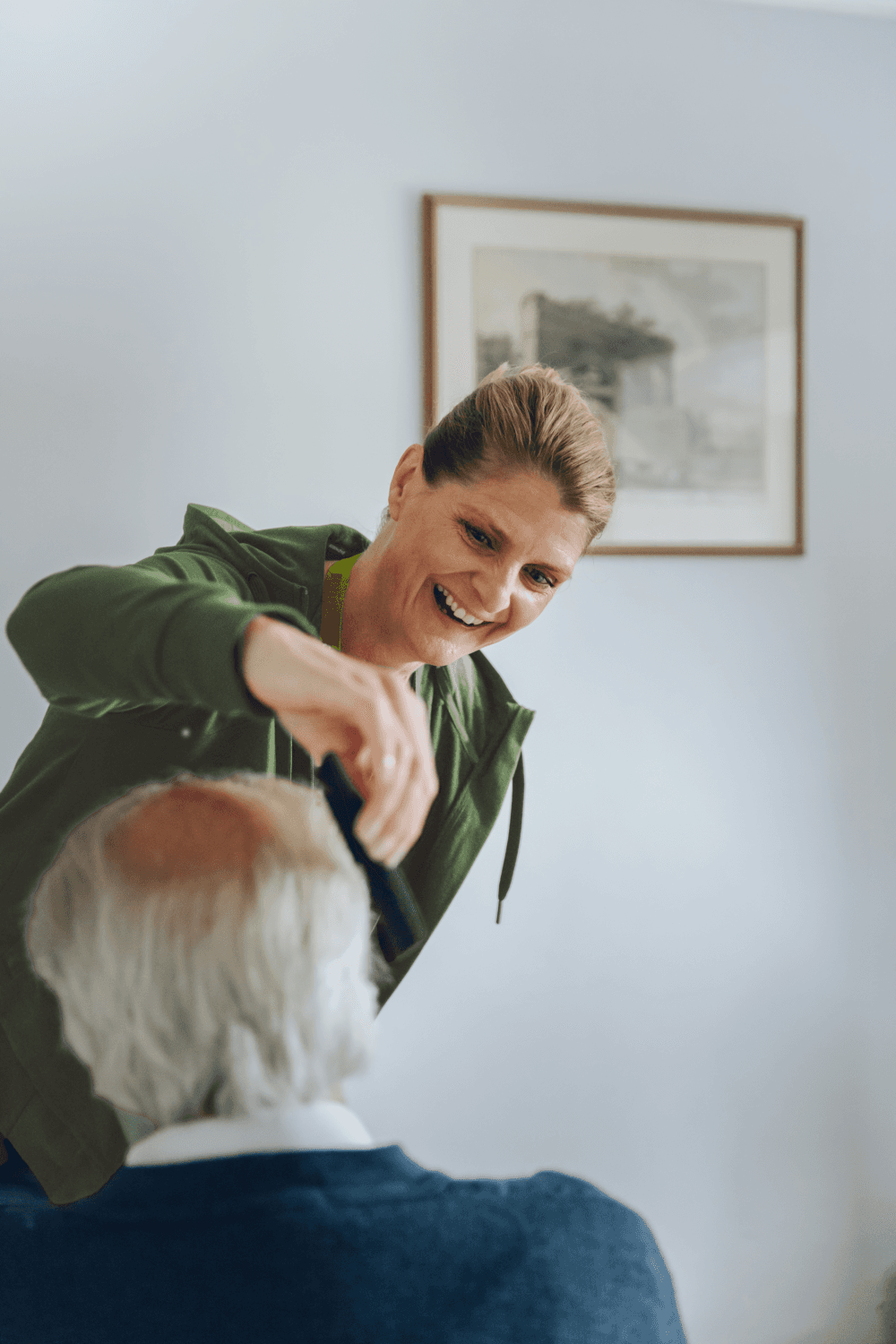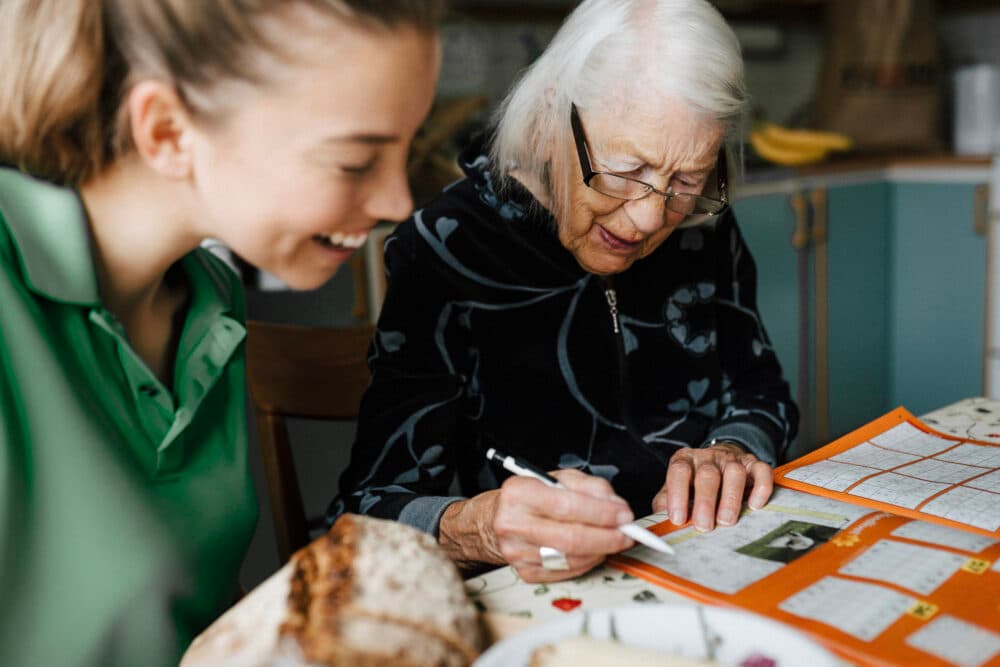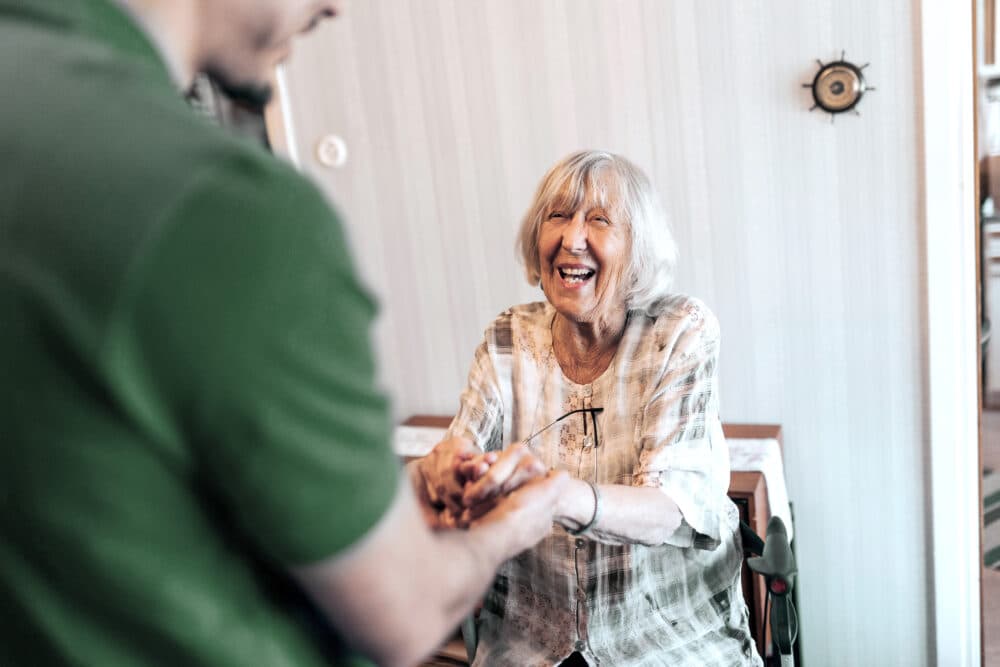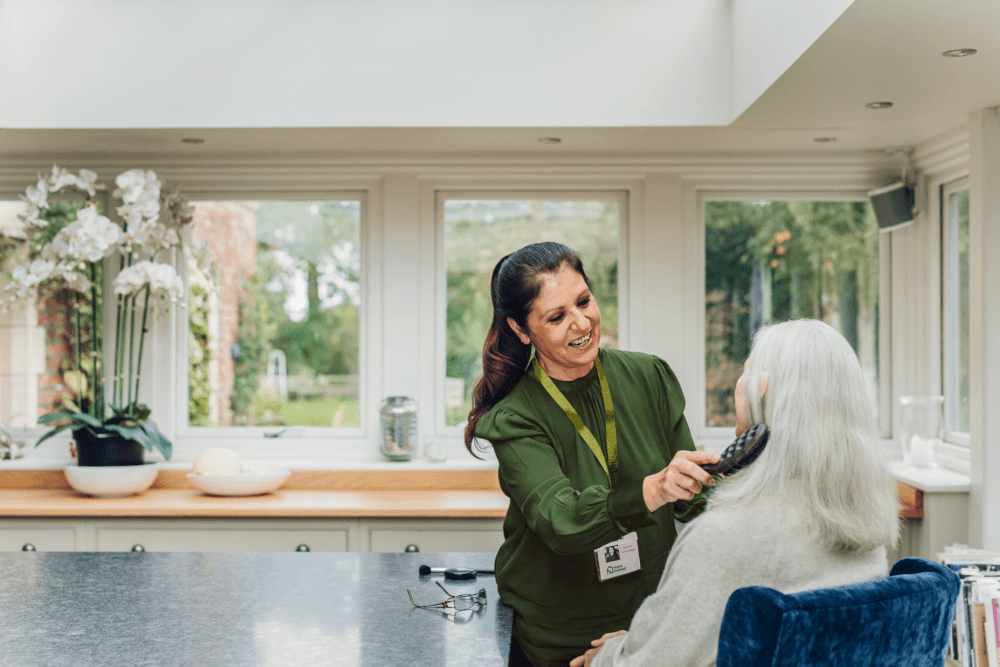Managing Dementia: Caring Tips for Family Caregivers in Taunton & West Somerset

With Dementia Action Week taking place from 19–25 May 2025, it’s the ideal time to explore how compassionate, well-informed support can make daily life more manageable—both for your loved one and for yourself. From building daily routines to accessing trusted local services, there are many ways to ensure those living with dementia continue to feel safe, valued, and connected to the people and places they love.
At Home Instead Taunton & West Somerset, we understand the emotional and practical experiences families encounter following a dementia diagnosis. That’s why we’ve created this blog to offer clear, supportive advice and highlight the local services that can help. Whether you’re new to caregiving or are looking for ways to strengthen the care you already provide, this guide is designed to support you every step of the way.

Understanding Dementia: More Than Memory Loss
Dementia is a syndrome affecting memory, thinking, behaviour, and daily functioning. Although more common with age, it is not simply “getting older.” Dementia results from changes in the brain caused by disease, degeneration, or injury.
Symptoms usually develop over months and can impact:
- Memory: Forgetting names, appointments, or recent conversations.
- Cognition: Challenges solving problems or understanding time and place.
- Language: Trouble finding words or following conversations.
- Mood and Behaviour: Anxiety, low mood, withdrawal, and personality changes.
- Sensory Perception: Hallucinations and confusion.
Recognising these signs early is important. Diagnosis allows individuals and families to plan for the future and access the right support.

Steps to Lower the Risk of Dementia
While ageing remains the strongest risk factor, a healthy lifestyle can lower the chances of developing dementia:
- Eating a balanced, nourishing diet.
- Staying hydrated throughout the day.
- Keeping physically active with regular exercise.
- Engaging in social activities and friendships.
- Pursuing mentally stimulating hobbies, such as learning a new skill.
- Managing medical conditions like high blood pressure, diabetes, and cholesterol.
- Avoiding smoking and limiting alcohol.
Simple changes today may support brain health for years to come.

Living Well After a Dementia Diagnosis
a dementia diagnosis may feel emotional and bring uncertainty. However, many strategies can help individuals continue living with dignity, safety, and purpose:
- Keep daily routines predictable and comforting.
- Use calendars and clocks to support memory and orientation.
- Place essential items like glasses and keys in visible, consistent places.
- Set up direct debits to manage household bills effortlessly.
- Use technology such as reminder apps, telecare alarms, and smartphone calendars.
- Create a dementia-friendly home with clear signs, safe walkways, and helpful lighting.
- Involve loved ones in decision-making and daily activities whenever possible.
Living well with dementia is about focusing on strengths, not just limitations.

Supporting Loved Ones with Dementia
Family carers play an important role. Support can be as simple as:
- Registering as a carer with the GP to access advice and support.
- Applying for a carer’s assessment to explore options for respite or help at home.
- Seeking financial support where eligible.
- Joining local support groups for emotional support and advice.
Remember: carers need support too. It is not selfish to seek help — it is necessary.

Helping With Everyday Activities
Involving your loved one in daily routines can help maintain independence and confidence. Here are a few ideas:
- Shopping and Cooking: Choose ingredients together or prepare simple meals as a team.
- Walking the Dog: Gentle exercise and fresh air can lift spirits.
- Using Memory Aids: Visual reminders around the home can encourage independence and reduce anxiety.
Celebrating small successes every day can make a big difference.

Supporting Nutrition and Hydration
Changes in eating and drinking habits are common with dementia. You can help by:
- Offering smaller portions of preferred foods.
- Engaging your loved one in meal preparation.
- Adjusting flavours to suit changing taste preferences.
- Providing finger foods and easy-to-hold utensils.
- Arranging regular dental check-ups.
Keeping mealtimes relaxed and sociable helps encourage eating and drinking.

Managing Incontinence with Dignity
Bladder and bowel issues may arise. To support continence:
- Clearly signpost toilet doors.
- Leave lights on at night.
- Watch for signs that your loved one may need the toilet.
- Establish regular toileting routines.
- Provide waterproof bedding discreetly, if needed.
Approaching these changes with compassion and understanding preserves dignity and self-esteem.

Washing and Bathing with Sensitivity
Personal care can require a more gentle and considered approach. To support washing and bathing:
- Always ask about preferences and choices.
- Offer reassurance throughout.
- Use aids such as bath seats and handheld showers.
- Select familiar and favourite toiletries.
Prioritising comfort and dignity is key.

Encouraging Better Sleep
Dementia can disrupt sleep. Some helpful strategies include:
- Increasing exposure to daylight and gentle exercise.
- Using dementia-friendly clocks with clear displays.
- Reducing caffeine and alcohol in the evening.
- Making the bedroom calm, using blackout blinds if needed.
- Limiting daytime naps.
Better sleep supports better mood, memory, and energy during the day.

Looking After Yourself as a Carer
Caring for someone with dementia can be exhausting. Protect your own wellbeing by:
- Taking regular breaks — even short ones.
- Reaching out to friends, family, and local groups.
- Joining online forums to share experiences and tips.
- being aware of when you may need a break, especially if you feel persistently tired or emotionally drained.
- Seeking professional help if needed.
Remember: a well-supported carer is the best support for a loved one.

Specialist Help from the Dementia Assessment and Support Service (DASS)
Across Somerset, including Taunton and West Somerset, the DASS team offers specialist support. Their role includes:
- Providing telephone consultations to gather information.
- Offering detailed assessments, including memory and cognitive testing.
- Recommending further investigations if necessary.
- Supporting ongoing care planning after diagnosis.
Contact DASS Taunton and West Somerset on 0300 124 5606, Monday to Friday, 9am–5pm.

Home Instead Taunton & West Somerset: Trusted Dementia Care at Home
At Home Instead Taunton & West Somerset, we understand the challenges dementia brings — and the difference personalised care can make. Our specialist dementia-trained carers offer compassionate home support, helping individuals stay safe, independent, and connected to the people and places they love.
What We Offer:
- Dementia Care
- Domiciliary Care
- Elderly Care
- Respite Care
- Palliative Care
- Community Care
- Stroke Care
- Disability Care
- Live-In Care
- Overnight care
- Cancer Care
- Intermediate Care
- Companionship and Home Help
Each care plan is tailored individually to meet changing needs, ensuring support evolves as circumstances change.
Why Families Trust Home Instead:
- Over 11 years of home care experience.
- Fully regulated and rated “Outstanding” by the Care Quality Commission (CQC).
- Excellent client feedback on Homecare.co.uk.
- A compassionate team led by Mark Hunt & Rebecca Gray (Directors), Clare Cottrell (Office Manager) and Joanna Skinner (Designated Registered Care Manager)
We are proud to be a trusted part of the Taunton and West Somerset community.

Contact Home Instead Taunton & West Somerset Today
If you are caring for someone living with dementia — or are seeking support — we are here to help.
Telephone: 01823211121
Address: Pitts Close, Taunton, Somerset,TA1 4TY
Opening Hours: Monday to Saturday: 9:00am– 5:00pm
Visit Home Instead Taunton & West Somerset to learn more about our dementia care services, explore career opportunities, or read our client reviews.

Areas We Serve
Taunton, Bridgwater, Monkton Heathfield, Pitminster and the surrounding areas
TA1 1, TA1 2, TA1 3, TA1 4, TA1 5, TA2 6, TA2 7, TA2 8, TA21 0, TA21 8, TA21 9, TA23 0, TA24 5, TA24 6, TA3 5, TA3 6, TA3 7, TA4 1, TA4 2, TA4 3, TA4 4
Comeytrowe Centre, Home Instead The, Pitts Cl, Taunton TA1 4TY, UK